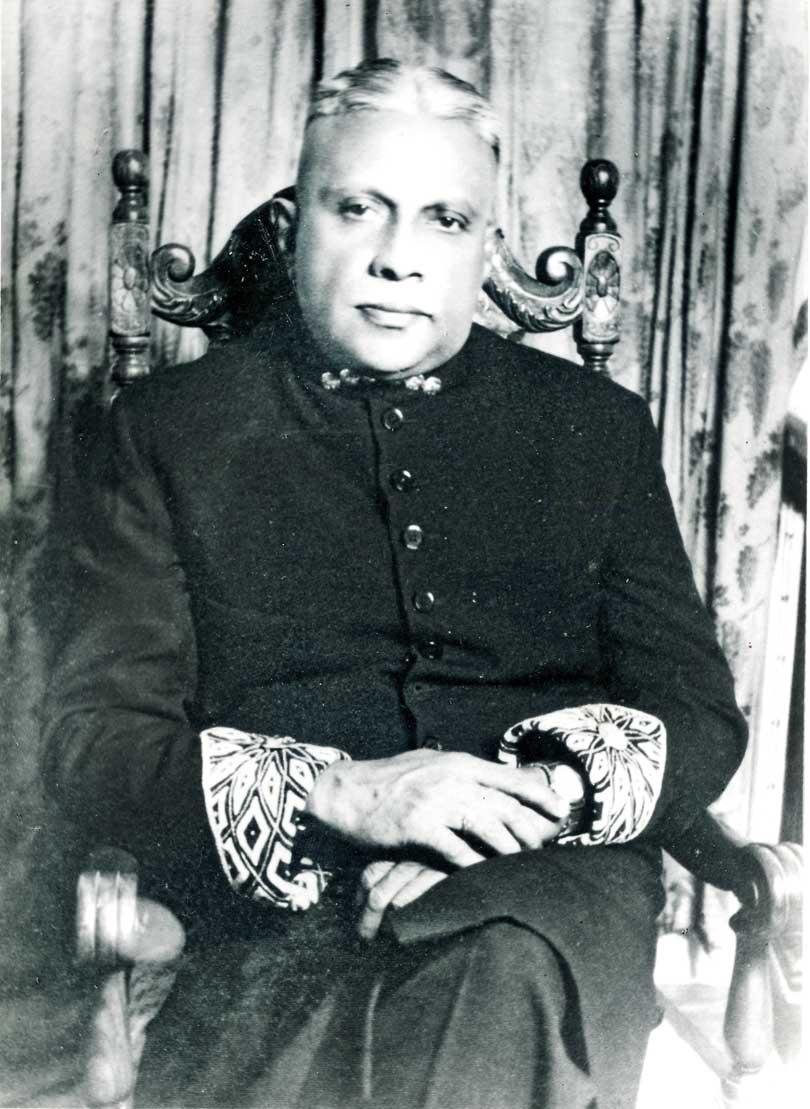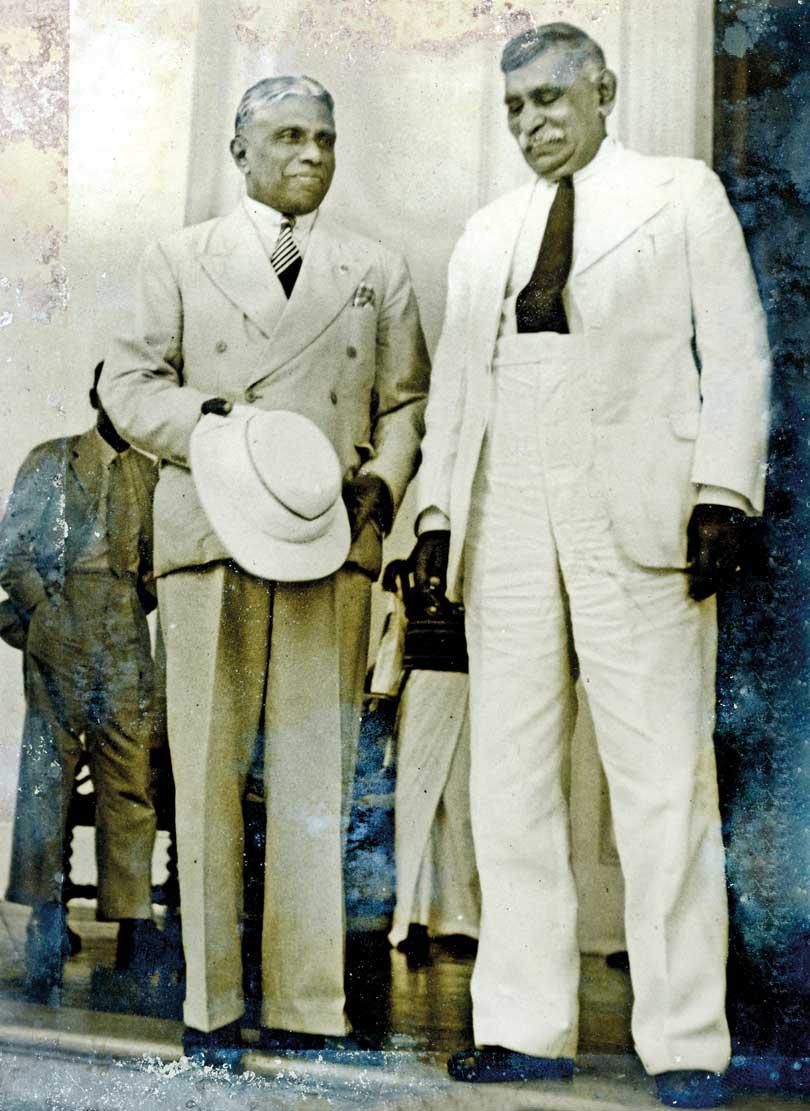Reply To:
Name - Reply Comment

 Born on 1 May 1891 in Kandy, A. E. Goonesinha was educated at Dharmaraja College and at St. Josephs College in Colombo. He commenced his professional career as a journalist and publisher of the Journal “Search Light” to support the National Movement in Ceylon.
Born on 1 May 1891 in Kandy, A. E. Goonesinha was educated at Dharmaraja College and at St. Josephs College in Colombo. He commenced his professional career as a journalist and publisher of the Journal “Search Light” to support the National Movement in Ceylon.
He was instrumental in forming the “Young Lanka League” on 2 March 1915 directed towards fighting against colonialism. He also formed the Gandhi Association inspired by the Indian National Movement fighting for freedom from colonial rule. “The Lanka Workers’ Association” was also his brainchild. It was the forerunner to the formation of worker organisations and trade unions later on in Ceylon. On 15 August 1915, Goonesinha started the Journal “The Nation” to support the national cause.
The colonial government introduced In 1891 a Poll Tax of 2 Rupees per year per male adult. Those who did not pay had to work on the roads for one day in lieu of the tax. Goonesinha campaigned against the tax levied by the Municipal Council and got the members of his Young Lanka League not to pay the tax and to work on the road instead. His determination in breaking metal himself for 8 hours with people joining him in greater numbers and offering support, resulted in the tax being finally withdrawn in 1923. Goonesinha was responsible for abolishing the Poll Tax. He was also proclaimed a National Hero in July 1928 when he represented Ceylon at the British Empire Labour Conference, London, and he was responsible in obtaining for Ceylon the Universal Adult Suffrage from the Donoughmore Commission in 1928.
Goonesinha’s political career marked the formation of the Ceylon Labour Party. First the Ceylon Labour Union was inaugurated on 10 September 1922. On 15 October 1928 the Ceylon Labour Party was formed with Goonesinha as President. The CLP was formed, after having had contacts with the Labour Party of Great Britain. In fact when Ramsay McDonald, the British Labour Party Leader and Prime Minister visited Ceylon in 1926, Goonesinha received him on behalf of the Ceylonese labour movement.
As mentioned before, Goonesinha appeared on behalf of the labour movement at the Donoughmore Commission for Universal Franchise in 1928. Significantly A.E. Goonesinha and the Ceylon Labour Union were the only advocates of the grant of Universal Franchise which the Ceylon National Congress Party vehemently opposed. Many years later at a session of the State Council J.R.Jayewardene had the brazen effontery to claim that it was the National Congress Party which was responsible for the grant of universal franchise to Ceylon. Colvin R.de Silva immediately rose to his feet and pointing to Goonesinha said “not you - it was he”.
At the State Council elections held in 1931 Goonesinha was elected on the Labour Party ticket as Member for Colombo Central Electoral District, and he repeated this feat in 1936. In 1940 he was elected to the Colombo Municipal Council and in 1943 became Mayor of Colombo.
In the 1947 Parliamentary election, he was elected as the first Member for the Colombo Central Seat (three Member seat) in Parliament and was appointed Chief Government Whip in the UNP government, Minister without Portfolio and Minister of State of the First Parliament of Ceylon then known as the House of Representatives of Ceylon led by Prime Minister D.S.Senanayake. He also served as the Parliamentary secretary to the Minister of Labour and Social Services, Dr. T.B.Jayah. Goonesinha was later appointed as Ceylon’s Ambassador to Burma and Indonesia.

Unfortunately there were many Communist leaders who merely took over the political path already laid out by A.E. Goonesinha and claim to be great leaders of the Labour Union movement then and today. Goonesinha was neither “Left” nor “Right”, he was a democrat at heart, a social democrat championing the Labour cause. He created paths and thus made history.
A. E. Goonesinha, a prominent freedom fighter and national hero, social worker, advocate of the poor, politician and trade union leader is remembered today as the father of Sri Lanka’s Trade Union Movement. Labour Day or May Day was first held in Ceylon in 1927 under the leadership of A.E. Goonesinha (and registered as the Worker’s Day for the labourer in Ceylon at the British Empire Labour Conference in London in 1928). He passed away on the 1st of August 1967.
Goonesinha’s devoted follower and an eloquent speaker in the Ceylon Labour Movement, the late President Ranasinghe Premadasa, renamed Price Park and the area in Pettah “Goonesinhapura” as a tribute to this leader of the workers. Price Park was where Goonesinha held the trade union and political meetings led by him, and where large crowds gathered to listen to the ardent speeches of Goonesinha and other contemporary leaders. This area is now known as “Goonesinha Park”.
As a mark of honour, his statue has been erected at the entrance to Goonesinhapura, showing him with a hammer in hand breaking rock stones for Civil Disobedience in not paying Poll Tax. This statue is garlanded every May Day. The people of Sri Lanka should not forget this great man.
(Based on Visakha Kumari Jayawardena’s book “The Rise of the Labor Movement in Ceylon“, Duke University Press, Durham, 1972)